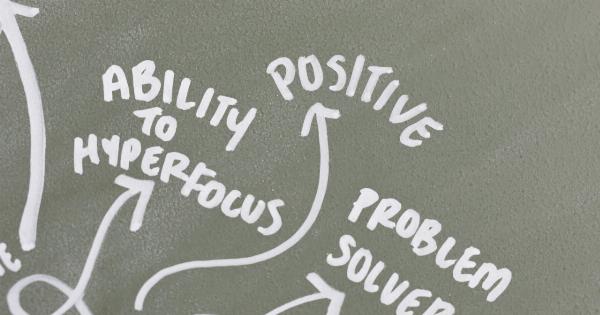Have you ever found yourself feeling down or stressed, and unable to come up with a solution to a problem? On the other hand, have you noticed that you have an easier time brainstorming ideas when you are feeling happy and content? There is a reason for this – studies have shown that our emotional state plays a significant role in our ability to problem-solve.
The Science Behind Problem-Solving and Happiness
Research has found that when we are feeling positive emotions, such as happiness, joy, and contentment, our brains are more open to creativity and flexible thinking.
One study published in the Journal of Positive Psychology found that individuals who reported higher levels of happiness were more likely to come up with creative and diverse solutions to problems than those who were not as happy.
This is because positive emotions activate the prefrontal cortex in the brain, which is responsible for cognitive flexibility and creative thinking.
Furthermore, when we are feeling happy, our brain releases neurotransmitters such as dopamine and serotonin, which are associated with feelings of reward, pleasure, and well-being.
These neurotransmitters not only enhance our mood but also improve our cognitive functions, including our problem-solving abilities.
Stress and Problem-Solving
On the other hand, when we are feeling stressed or anxious, our brain enters into a state of hyperarousal, where our body is preparing for a fight-or-flight response.
This state of mind can make it difficult to engage in creative thinking or come up with innovative solutions to problems.
In fact, research has found that individuals who are stressed are more likely to tunnel vision on a single solution to a problem, rather than considering multiple options.
This can lead to suboptimal choices and difficulty in finding an effective solution.
How Happiness Improves Problem-Solving
So why exactly are happy individuals better at problem-solving? Here are a few reasons:.
1. They are more flexible thinkers
As mentioned earlier, positive emotions activate the prefrontal cortex in the brain, which is responsible for cognitive flexibility.
This means that happy individuals are more open to considering a wide range of ideas and solutions, rather than getting stuck on one particular solution.
2. They can think more creatively
Positive emotions are also associated with enhanced creativity. When we are feeling happy and relaxed, our brains are more likely to make connections between seemingly unrelated pieces of information, leading to innovative and original solutions.
3. They have a broader perspective
Individuals who are feeling happy and content tend to have a broader perspective on life. This means that they are better able to take a step back and view a problem from multiple angles, rather than getting stuck in a narrow perspective.
4. They have a better ability to come up with multiple solutions
Happy individuals are more likely to engage in divergent thinking, where they come up with multiple solutions to a problem.
This is because positive emotions are associated with enhanced cognitive flexibility, allowing the brain to switch between multiple solutions.
Conclusion
Overall, research has shown that happy individuals are more adept at problem-solving than those who are not as happy. Positive emotions enhance our cognitive flexibility, creative thinking, and ability to come up with multiple solutions to a problem.
So the next time you find yourself stuck on a problem, try to put yourself in a positive mood by doing something that makes you happy – it may just help you come up with the solution you need.






























